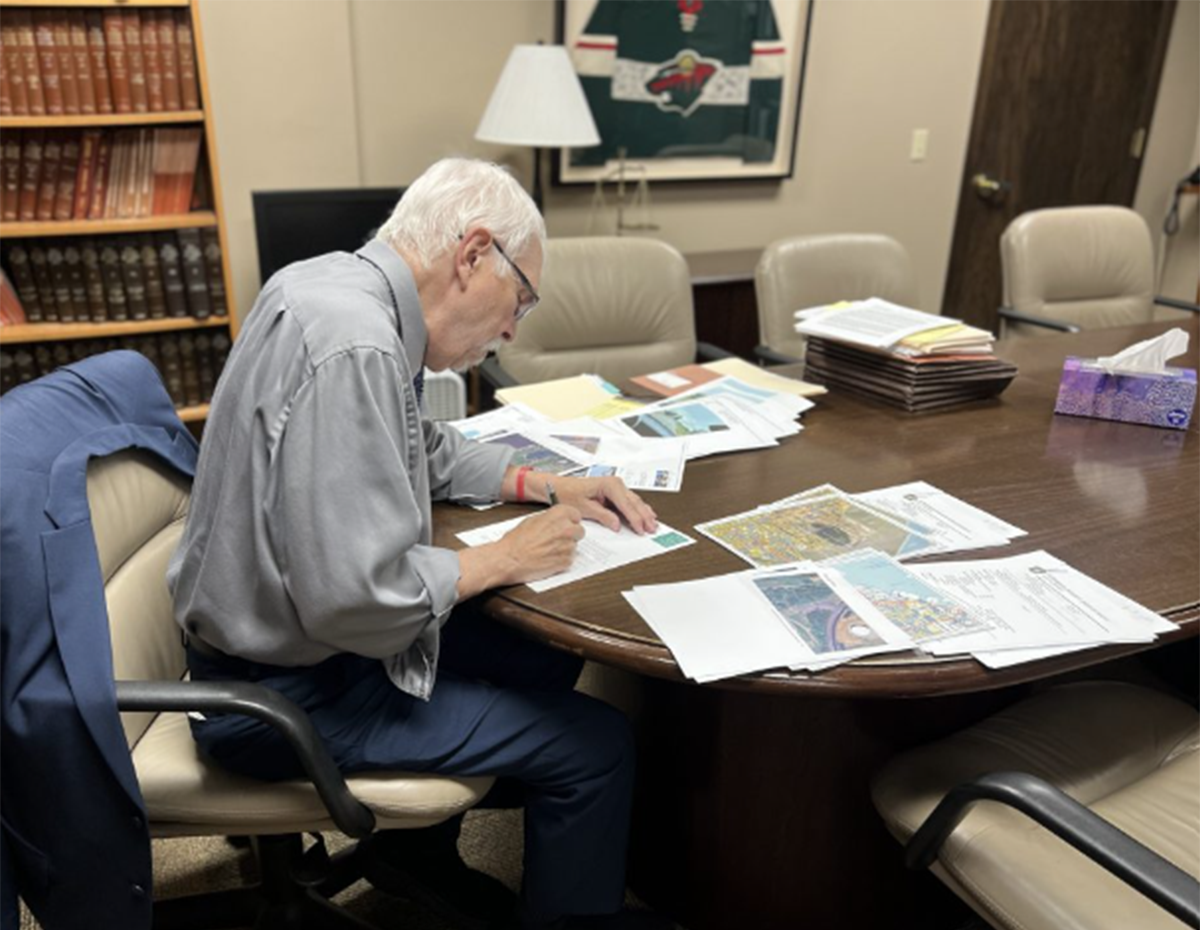In the Philippines in 1996 a dam that held back poisoned rocks from mining operations burst, spewing heavy metals, acids and chemicals into a stream.
In five days, a native community 40 miles downstream was declared a biological dead zone.
Al Gedicks, a sociology professor at UW-La Crosse, spoke about this to 85 students Monday in a section of geography 111, a course in human geography.
“This was a disaster in proportion to Chernobyl,” Gedicks said. “It was on the same scale as the Bhopal chemical disaster and comparable to the Three Mile Island nuclear disaster.”
His speech, “Human Geography: An Introduction to Globalization” was about mining in the Philippines and oil companies in Colombia.
Junior Lindsey Prell said it was important Gedicks came to speak.
“We should be interested in issues as taxpayers,” Prell said. “As citizens of the United States, we are being represented by money going to support paramilitary groups.”
Not many people know of the $1.3 billion of taxpayer money going to Colombia, she said.
One hundred million dollars of taxpayer money goes toward military aid to protect the U.S. pipeline in Colombia, Gedicks said.
Gedicks’ speech explored the cultural impact of these big business operations on the indigenous peoples.
Gedicks talked about people in the most remote environments, people who fled to avoid colonialism and now oil and mining companies who are seeking their land.
Those responsible for this invasion of energy corporations, he said, are the World Bank, the International Monetary Fund, national governments and energy companies.
Gedicks displayed a public relations advertisement by a mining corporation on an overhead projector. The advertisement stated, “From the Brazilian rainforests, to the Australian outback, our customers mean the world to us.” Above the text was the picture of a tribal native with his face painted in a ceremonial fashion.
Gedicks said this depiction is just for the stockholders. He said that the picture on the other overhead projector, one of Colombian soldiers protecting an oil derrick is more reflective of the relationship between the indigenous culture and the energy companies.
The connotation that Gedicks used to describe globalization was the influence of rich and powerful energy companies over smaller governments of impoverished countries.
Half of all countries of the world revised their mining codes in the last decade to allow in larger companies, he said.
Some codes allow countries and large energy companies to evict natives, Gedicks said, so their land can be used for mineral mining.
The state has control of all subsoil resources, including minerals and energy such as oil.
The environmental impact of these larger companies, Gedicks said, is increcibly detrimental to the indigenous people.






